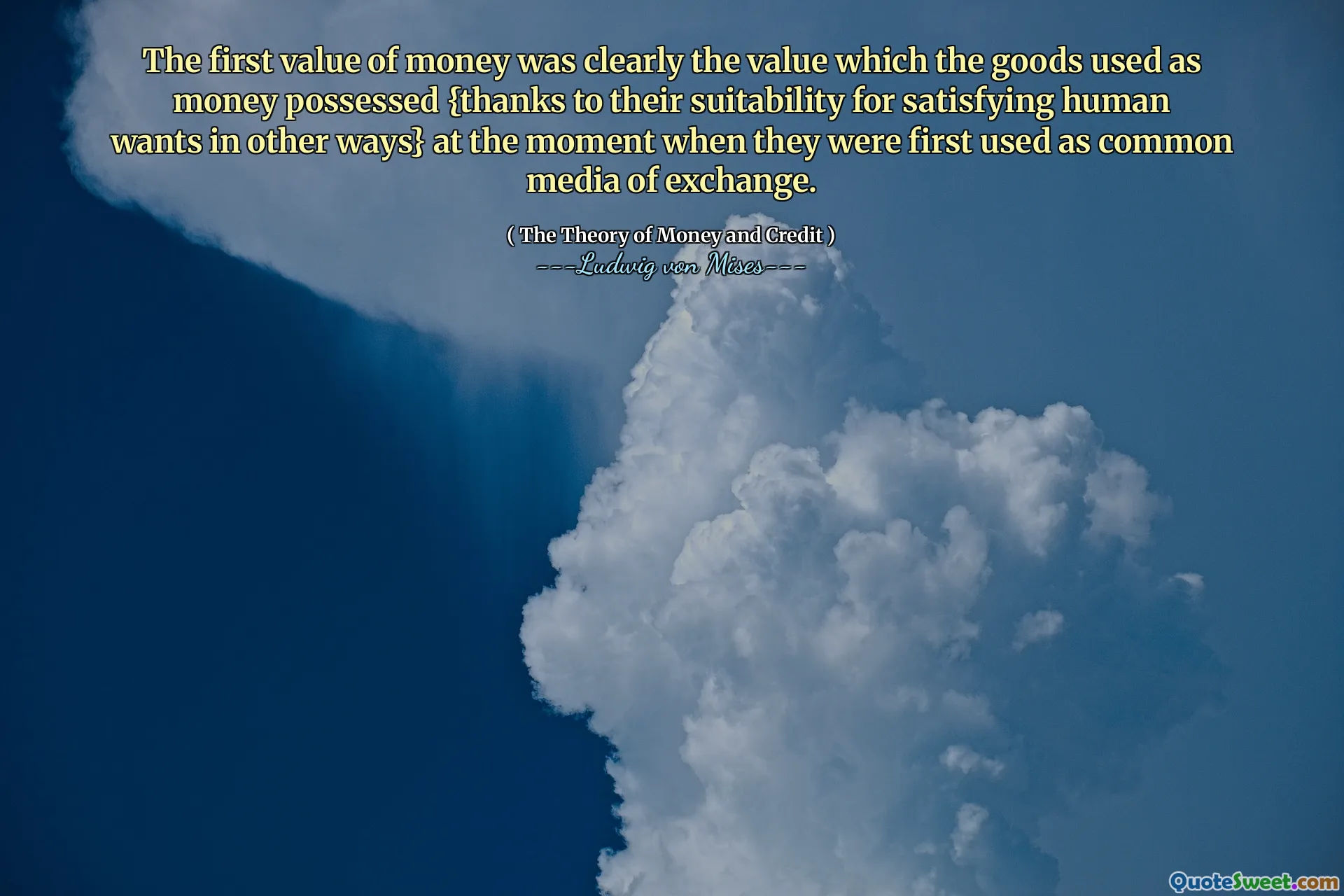
The first value of money was clearly the value which the goods used as money possessed {thanks to their suitability for satisfying human wants in other ways} at the moment when they were first used as common media of exchange.
This quote underscores a fundamental insight into the origins and nature of money. It suggests that the initial value of commodities employed as money stemmed from their inherent utility and ability to satisfy human needs, rather than any intrinsic or arbitrary worth. Historically, societies first adopted items like shells, grains, or livestock as mediums of exchange because of their recognized usefulness and desirability, which in turn made them naturally suited as ways to facilitate trade and commerce.
The importance of practicality and usefulness in these early economic tools highlights a principle that persists today: the value of money is ultimately rooted in what it can do for its users. Over time, commodities that retained their utility or convenience became preferred, providing a stable medium that reduced the complexities and inefficiencies of barter systems. This transition marked a significant evolution in economic systems, moving from direct exchange of goods to a standardized medium that represents value.
Understanding this origin story helps us recognize that money isn’t just a symbol of wealth but a tool that derives its importance from its capacity to serve human needs efficiently. It also sheds light on the nuances of monetary value—how societal preferences, utility, and function shape economic exchange. The historical perspective reminds us that what we now consider to be currency, such as fiat money, may have abstracted further from tangible utility, yet its foundational value still depends on its acceptance and usability.
In the context of Ludwig von Mises's works, this quote aligns with his emphasis on the subjective nature of value and the importance of utility in economic decision-making. It reveals that money's fundamental purpose lies in its ability to serve human needs, a concept central to understanding monetary theory and economic behavior.






